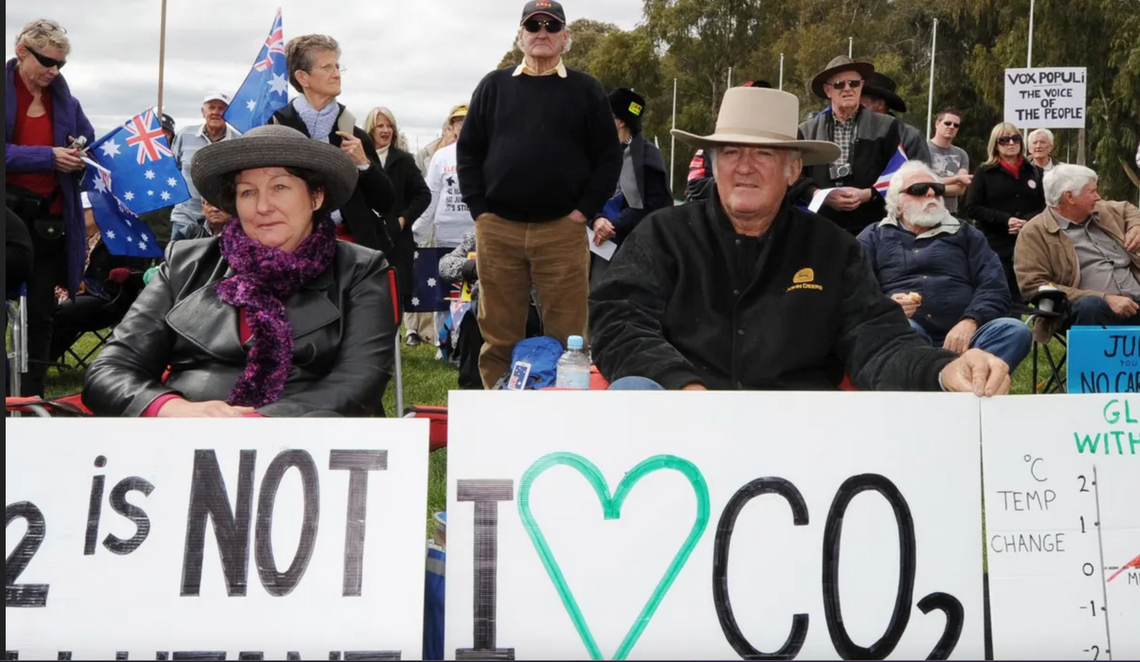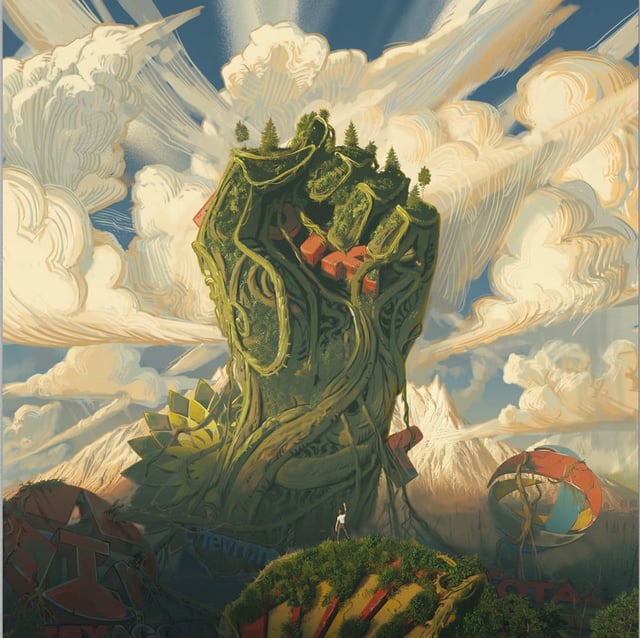
I recently found myself in a room full of climate writers and scientists. Many of us knew of each other only through our bylines and Twitter handles. So, the morning was full of excited introductions that ended in more hugs than handshakes.
Hopped up on honeydew and coffee, I soon took the stage for a two-person panel about all the ways we talk and don’t talk about the climate crisis. I was there to represent climate writers, and my co-panelist to represent climate scientists.
These appearances are like catnip in the climate community. Over the past year, I’ve been on more of these panels than I can keep track of. It would be easy to decry them as insular, masturbatory exercises in preaching to the converted. But the truth is, even we, the Congregation of Climate, have a lot to sort through. We need to talk.
As this particular session neared its end, my co-panelist, an affable, thoughtful white guy, asked me a question I knew was coming. I’d have seen it coming even if he hadn’t shared the questions with me beforehand, because it comes up so often, in different forms.
It goes something like this: What do you say to people who claim that connecting climate change to racism might alienate people who might otherwise be on your side?
I sighed and muddled through an answer, one that I’ve given a version of over and over, but never feels satisfying.
I want to be angry at this question. I want to be tired of it, even. But the truth is, it just...hurts.
Not On My Side
While there’s a lot about this question that concerns me, it’s the innocence of it that haunts me. I know that my co-panelist does not subscribe to this argument. He wanted to create the space to address it. In fact, I almost never hear this argument from anyone who truly believes it.
Instead, I hear it secondhand and almost exclusively from white men, who hear it from other white men who would never, ever say it to my face, because they wouldn’t say anything to my face, because they generally don’t talk to me at all. It makes me unbelievably nervous about what white men, who hold so much power, say to one another in private.
So, a short answer is: I wouldn’t say anything to them, because I wouldn’t have the opportunity.
I’ve also heard different iterations of this argument everywhere from epic Twitter brawls to presidential platforms: the climate crisis is simply about science. It’s a physical phenomenon with a ticking clock. It affects everyone, not just some people, and thus usurps every other issue. So don’t taint my precious climate policy with your filthy identity politics. We’ll get around to those later.
These people are not, from any angle, “on my side.”
The New Climate Denial
Yes, the way that carbon dioxide interacts with the atmosphere is a simple matter of physics. But you can’t stop there — not if you believe climate change is man-made. You have to examine the histories of deforestation and fossil fuel infrastructure, and if you do that honestly you land at colonialism and slavery, and see that the climate crisis is intricately interwoven with structural racism and economic inequality and patriarchy and...I could go on.
I find it nearly impossible to look at the climate crisis without seeing the consequences of all the times white folks told people of color: “Wait, we’ll get back to it later.” To be satisfied with “incremental change” and not “push too far.” To settle for band-aids atop gaping, festering wounds .
So forgive us if our ears have turned to tin. Forgive us if we refuse to help you put on your life vest first, when you’re the one farthest from the flood. We’ve drowned in patience long enough.
Furthermore, this supposed dichotomy between climate policy and social justice has been proven false over and over. To the point of exhaustion. So if you can’t see the connections, it’s because you don’t want to.
In other words, if your acceptance of the climate crisis stops with the science, and fails to encompass the true roots in economic and social exploitation, you are being willfully obtuse. Your privilege is clouding your vision. You, my dear friend, are in denial.
In the climate context, we think of “denial” as rejection of the science. But the climate crisis no longer looms on a horizon. It has leapt out of the scientific journals, past the headlines, to our very doorsteps. It’s quite literally, burning our houses down. Anyone who full-throatedly argues that climate change isn’t “real” is not just rejecting science. They have dissociated from reality. (That’s a whole other ball game for a whole other essay.)
Those who deny the real roots of the crisis, on the other hand, in the face of copious evidence to the contrary? Now, that’s denial. A fact is a fact, after all. Thus, denying the history is just as bad as denying the science.
And it sadly often comes from smart people with significant “green bonafides,” some of them even draped in capes as genuine climate heroes. These are by all accounts “serious” people who seriously want to take on the climate crisis. It’s not that these connections elude them. It’s that they evade them.
That’s the part that stings the most: The denial is coming from inside the house.
Who’s Worth the Sacrifice
Here’s the thing: The people who think climate solutions need not be tethered to social justice are the same people who bemoan the absence of people of color in the climate movement. Yet these same people seem to feel no shame for chiding those on the margins that if they care about “identity politics” (their bizarre code word for “human rights”), they need to care about climate too. But you cannot have both of those things.
At the same time that I hear this zombie argument from invisible white guys, I also hear from people of color in the climate movement that they’re tired of being sidelined and silenced — or worse, turned into mascots. So, burned and burnt out, they leave climate activism behind. I can’t say I blame them, or that I haven’t considered joining them.
Every person of color who walks away from the climate movement takes with them pages of the playbooks from almost every successful social movement in recent memory. Immeasurable generational wisdom. Guess who we can’t afford to lose right now?
All for the sake of people who have the least skin in the game, who’ve often known about the problem the longest.
A Whole New World
The climate crisis is at a critical moment now, and so is the climate movement. We need to decide both who we are, and what we want to build. It’s clear to all of us that we need to build a whole new world, but what kind of world will that be?
If it’s one in which you can have your climate action and your bigotry too, I don’t see a place for myself in it. My ancestors built a whole country that had no place for them. I don’t think they would forgive me if I did the same thing.
I shouldn’t even be asked.
After all, a world in which we have solved for climate, but leave intact the racist and exploitative systems that created the crisis, is not, in fact, a world in which we have solved for climate. And it’s not one in which I am safe.
Any movement that allows people to be part of both the problem and the solution is not a movement, but a stagnation. To separate “climate action” from “climate justice” is to separate our existence from our humanity. I, for one, will have none of it.

